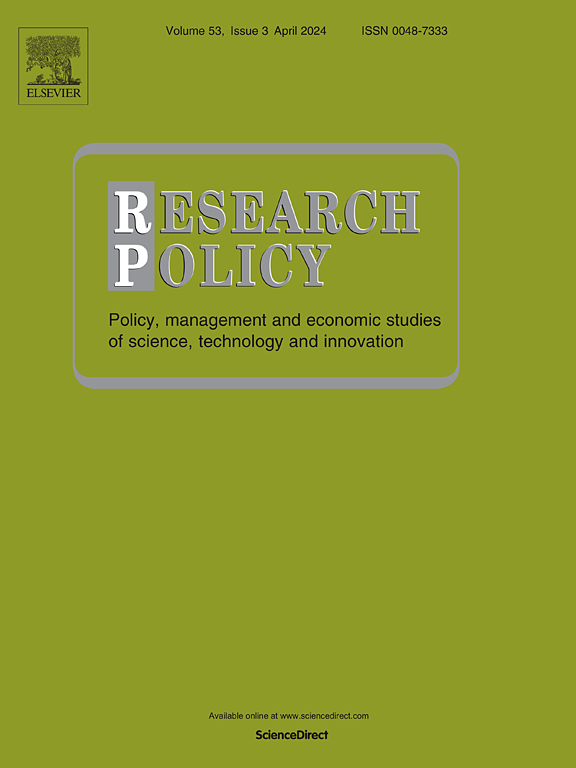Simmelian brokerage, tertius iungens orientation, and idea elaboration
IF 8
1区 管理学
Q1 MANAGEMENT
引用次数: 0
Abstract
In organizations, idea elaboration calls for employees to work with inner-circle coworkers, who may be embedded in separate network cliques. Theories are inconclusive concerning how brokerage position between separate cliques will affect the elaboration and improvement of embryonic ideas. In three studies of R&D scientists and medical professionals in various field settings, we first explored and found that being the sole shared member of separate cliques (i.e., Simmelian brokerage) undermines the quantity and quality of elaborated ideas. To explain this finding, we suggest that the Simmelian brokerage position begets a multi-insider trap: while the idea elaborators benefit from obtaining non-redundant feedback across separate cliques, they also encounter the challenge of selecting, aligning, and integrating potentially conflicting feedback. To investigate a boundary condition, we then explored the role of tertius iungens orientation; i.e., the tendency to bring people together with an inclusive mindset to incorporate divergent perspectives. Prior research suggests that this can reduce both the advantages and disadvantages of brokerage positions. Results show that Simmelian brokerage's detrimental effect is mitigated for people with a higher level of tertius iungens orientation. Overall, this exploratory research identifies a pitfall for innovators who are the sole shared member of separate network cliques, and illuminates who might best navigate such a pitfall.
Simmelian broker, tertius iungens orientation, idea elaboration
在组织中,想法的阐述要求员工与内部圈子的同事合作,这些同事可能被嵌入到不同的网络派系中。关于不同集团之间的经纪地位将如何影响萌芽思想的阐述和完善,理论尚无定论。在对不同领域的研发科学家和医学专业人士进行的三项研究中,我们首先探索并发现,作为单独集团(即Simmelian经纪)的唯一共享成员,会破坏精心构思的想法的数量和质量。为了解释这一发现,我们认为Simmelian经纪人的立场引发了一个多重内部人陷阱:虽然想法阐述者从不同集团中获得非冗余反馈中受益,但他们也遇到了选择、调整和整合潜在冲突反馈的挑战。为了研究边界条件,我们随后探讨了第三系细菌取向的作用;即,以包容的心态将人们聚集在一起,以吸收不同的观点。先前的研究表明,这可以减少经纪职位的优势和劣势。研究结果表明,非典型肺倾向水平越高,Simmelian经纪的不利影响越小。总的来说,这项探索性研究发现了创新者的一个陷阱,他们是单独网络集团的唯一共享成员,并阐明了谁可能最好地驾驭这种陷阱。
本文章由计算机程序翻译,如有差异,请以英文原文为准。
求助全文
约1分钟内获得全文
求助全文
来源期刊

Research Policy
MANAGEMENT-
CiteScore
12.80
自引率
6.90%
发文量
182
期刊介绍:
Research Policy (RP) articles explore the interaction between innovation, technology, or research, and economic, social, political, and organizational processes, both empirically and theoretically. All RP papers are expected to provide insights with implications for policy or management.
Research Policy (RP) is a multidisciplinary journal focused on analyzing, understanding, and effectively addressing the challenges posed by innovation, technology, R&D, and science. This includes activities related to knowledge creation, diffusion, acquisition, and exploitation in the form of new or improved products, processes, or services, across economic, policy, management, organizational, and environmental dimensions.
 求助内容:
求助内容: 应助结果提醒方式:
应助结果提醒方式:


